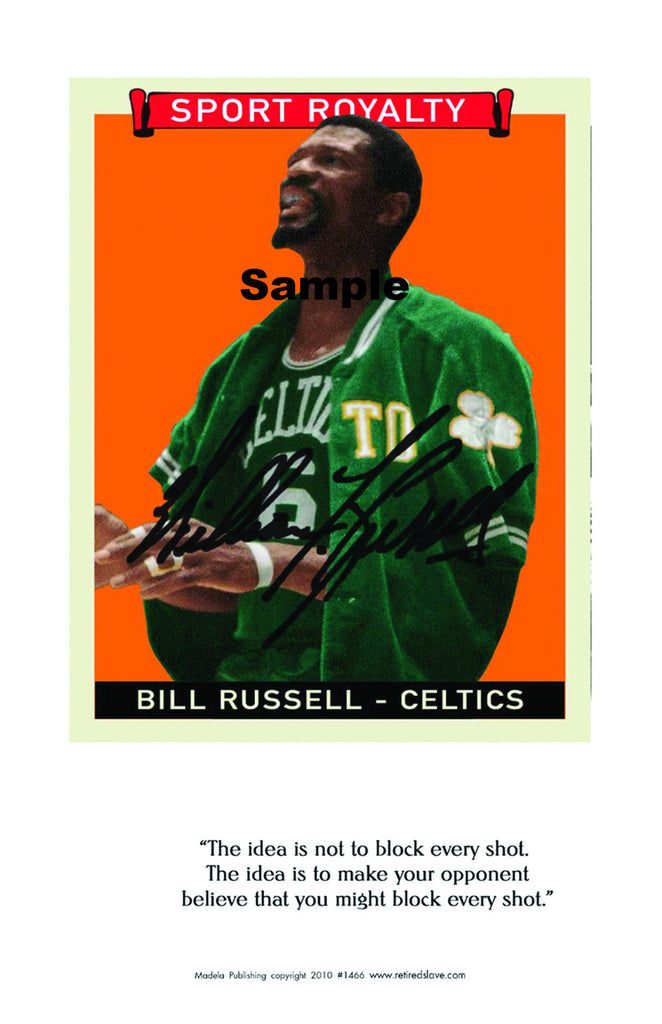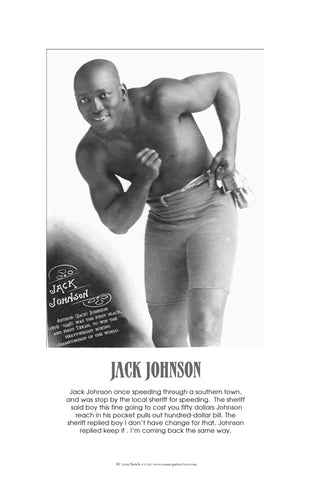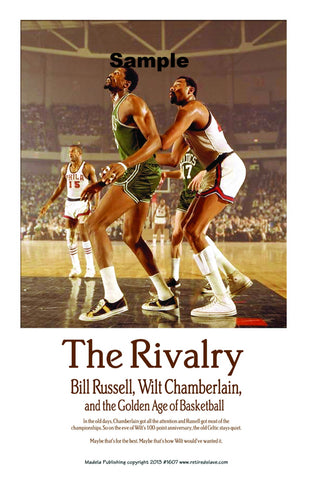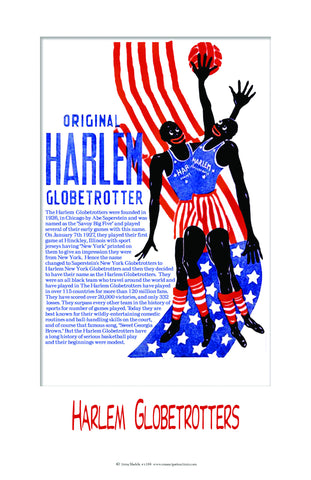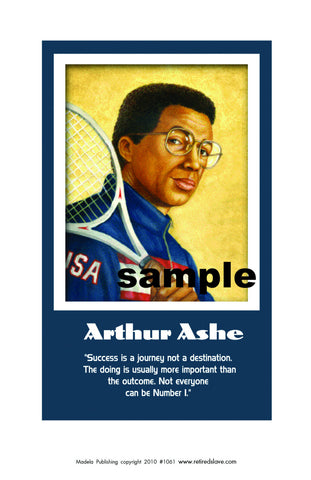Bill Russell #1466
$ 10.00
Caption from poster__
Bill Russell
“ The idea is not to block every shot.
The idea is to make your opponent
believe that you might block every shot.”
During Bill Russell's 13-year NBA playing career, his Boston Celtics won 11 championships, a record for winning unmatched by any player in any sport. He was named the league's Most Valuable Player five times. He was not a natural star. In junior high, Russell was cut from tryouts for the basketball team. In high school he barely made the junior varsity squad as a sophomore. But he worked at it, eventually making the varsity team as a junior, and he joined the starting line-up as a senior, as his team won the league championship. Still, the sports star at Russell's school was his baseball playing classmate, Frank Robinson, and only the University of San Francisco offered Russell a sports scholarship. At USF, with perpetual practice, he became a better and better player. He made the varsity team in his sophomore year, and in his junior and senior year USF won two consecutive NCAA championships. Russell literally changed the way the game was played, when, after the 1955 NCAA tournament, collegiate coaches enacted two key rule changes in direct response to Russell's dominance -- the free throw lane where defensive players are not allowed to congregate was widened from ten feet to twelve, and "goaltending" (touching the ball on its downward arch toward the basket) was banned. After graduation, Russell was drafted by the NBA's St. Louis Hawks, but he was immediately traded to the Boston Celtics (in exchange for Ed Macauley and Cliff Hagen). He missed the first month of his rookie season, instead fulfilling a childhood dream by playing for the US Olympic basketball team, winning a Gold Medal. In his pro career, Russell averaged 'only' 15 points per game, but he played defense like nobody had before, proving that offense really is only half the game. With Russell clogging the middle, opposing teams were forced to shoot from outside, unable to find an easy lay-up. And when either team missed a shot, Russell was there for the rebound -- he led the league in rebounds five times, and after his Olympic-shortened first season he never had less than a thousand rebounds in a season. With his height and agility, he could leap and block shots to great psychological effect, often batting the ball back with force to intimidate opponents just when they believed they had out-maneuvered him -- and just as often, deflecting an opponent's shot to Russell's teammates for a fast-break basket. He would undoubtedly hold the career record for blocked shots, but that statistic was not kept until after his retirement. The match-ups between Russell and his era's other dominant center, Wilt Chamberlain, drew huge media and fan attention. Chamberlain usually led the league in scoring and won two championships, but when it came to crunch time, Russell's teams usually won. Eight times their teams faced each other in the playoffs; seven times Russell's team won. Chamberlain might score 30 points in a game, but Russell would pull down 20 rebounds, block half a dozen shots, and rack up another half-dozen assists. Their rivalry, though, was mostly in the media's minds. In reality, they were friends. The Celtics and Chamberlain's Philadelphia Warriors traditionally played each other in Philadelphia on Thanksgiving day, and Russell would eat turkey dinner at Chamberlain's house. Russell was also an outspoken advocate for civil rights. He was one of the first celebrities to proudly call himself black, when "negro" was still the accepted and polite term. At least twice, he refused to play a scheduled game when his black teammates were given inferior accommodations, and since Russell's presence sold many tickets, the problem with accommodations was quickly addressed. He spoke at the 1963 March on Washington, and established an off-season sports training camp open to kids of any color. In 1967, still playing for the Celtics, Russell took over as coach when Red Auerbach was promoted, making Russell the first African-American to coach a major league professional sports team. The next season he became the first African-American coach to win an NBA championship. After his playing career, Russell worked as a coach and sports commentator. He was a pallbearer at the funeral of Jackie Robinson, and spoke at Chamberlain's funeral in 1999. His brother, Charlie L. Russell, is a playwright whose most famous work, Five on the Black Hand Side, was produced on the New York stage starring Demond Wilson, and made into a movie featuring Godfrey Cambridge. His daughter, Karen Russell, is a TV reporter and commentator with Huffington Post. His second wife, Dorothy Anstett, was Miss USA in 1968, and was white, which made their marriage controversial at the time. Russell is the namesake of the Most Valuable Player Award for the NBA's annual championship series.
